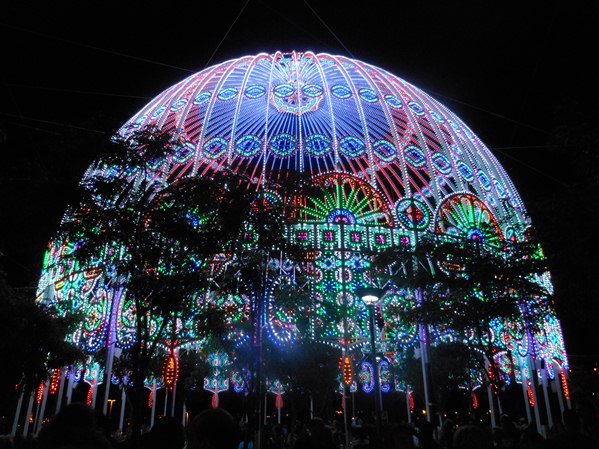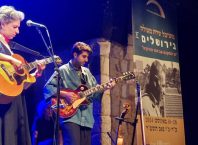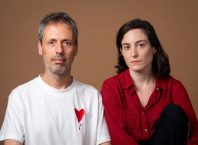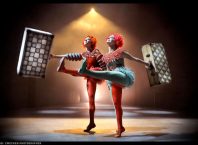It’s a bizarre city. I mean that in the truest sense of the word. It’s weird, it’s peculiar, it’s whatever synonym you wish to substitute for ‘unusual’ or ‘strange.’ Fortunately, I have always been under the conviction that nothing worthwhile in life is normal, and it’s oddness that fuels the world and invigorates my being. This is because in everything odd there is something quaintly wonderful, and Jerusalem has precisely that. It has this mysterious charm, this enchanting curiosity that lures you into its sphere of eccentric energy and doesn’t let you go. I have been to Israel many times before, but studying in Jerusalem this semester, I have discovered the city with fresh eyes, surpassing my complementary, but underrated, past understanding of the city. In just five months, I have seen a new Jerusalem emerge: an unparalleled hubbub of nationalities and a carnival of sweeping diversity. Jerusalem’s magical ability to attract such utterly contrasting people from starkly different countries, cultures, religions, and backgrounds is unmatched, making the city an exceptional arena for appealing, zany commotion.

Because of the eclectic diversity, Jerusalem is also a fertile ground for creativity and a thriving city for artistic vision. Returning two nights ago from the Jerusalem Festival of Light, an exemplary instance of the city’s artistic production and creative assemblage, I witnessed a scene on the Light Rail that I will never forget.
There are sections on the light rail where there are four seats adjacent to each other against either side of the train. (To picture it, imagine eight people directly facing each other, four on each side of the train doors.) I was sitting in such a section. Drowsy and exhausted from the day and the crowded evening in the Old City (where the Festival of Light took place), I was eager to get back to Kfar HaStudentim (the student dorms on Mount Scopus, where I call ‘home’ these days.) Despite my fatigue, it only took a few minutes for me to become aware of the unusual situation next to me. Two seats down from me was a Hasidic Man – black coat, black hat; frizzy, thick beard; long, coiled peyot and all. On his lap sat his two or three year old son with his long uncut hair in a messy ponytail on top of his head, his big blue baby eyes as glossy and drained as mine, his skin pale and silky, his tzit tzit hanging from his tiny shorts. The Hasidic man wrapped his arms tightly around his son, who was, strangely enough, smiling and giggling.
I quickly realized that the little boy wasn’t just giggling for the sake of giggling or out of midnight delirium – I’ve already learned that Israeli kids have no bedtime and I am no longer shocked when I see children out at 2 am with their parents – but rather he was giggling with another two year old boy, directly across from him. Directly across from the Hasidic man and his son, only a few feet across – the train is fairly narrow – sat a woman dressed in an elegant long coat and an ornate hijab headscarf. On her lap sat her own son, two or three years old as well, his brown shaggy hair muddled on top of his sleepy head, his big brown eyes squinty both from weariness and laughter, his skin a beautiful bronze. The little boys, both securely held by their respective parents, began to giggle, laugh, point, chatter, and smile in that silly, instinctive way only babies know, as babies and children always, somehow, find a way to correspond and communicate with their own kind.
What a bizarre scene I was observing! What tension, what opposition (what tension of opposites), and yet what unity, what magnificence! I could see the apprehension in the parents’ eyes, rigid and alert, in harsh contrast to their sons squinty, gleeful ones. The Hasidic Man and the Muslim woman were facing each other in anxiety and unavoidable confrontation and connection that their sons were initiating between them. I could feel the friction for it reverberated loudly to me.
We talk about baseless hate all the time, especially here in Israel. Arabs and Jews would get along if only both parties were better educated, if only we broke down stereotypes and prejudices, if only they weren’t taught “baseless hate.” But what about baseless love? These two boys, no older than three, faced each other in baseless love. And it was beautiful. I know they will go on to grow up in entirely different cultures; I know they will grow up to hold completely differing views and beliefs; I know they will grow up to learn opposing, irreconcilable histories; I know they may grow up to be their parents – their parents who could barely look at each other on the train! And yet in this one moment, there was nothing irreconcilable between them at all. In this one moment, there was no denying the power of such a thing as baseless love, something that is more powerful than the elimination of baseless hate. What we need is baseless friendship. Baseless laughter. Baseless communication. Baseless tolerance. Baseless acceptance. Baseless love.
This situation brought to my mind a chapter from the book, Tuesdays With Morrie, in which Morrie (the professor) tells Mitch (the student) about the “tension of opposite” in life. After the explanation, Mitch asks a logical question: “which side wins?” Morrie smiles and responds: “Love wins. Love always wins.” In the naïveté of these toddlers, one from a Hasidic Jewish family and one from an Arab Muslim family, whatever dissimilarity, diversity, or contradiction that exists between them disappeared. Through the simplicity and innocence that all children hold, the tension of opposites was able to collapse and convert into harmony. This love that Morrie claims “always wins” is the unity of opposites that, in this instance, was able to prevail.
Only in Jerusalem.






Thanks for your comment, Fereydoun – I appreciate it! I’m glad my message in this simple yet meaningful story was well-received.
Great article, it is refreshing to see somebody young who can see through all the biases and mental pollution and recognize the bonds that remind us of our humanity and prejudices and bigotry that makes us the monsters some times we are. Well written. Bravo
Comments are closed.